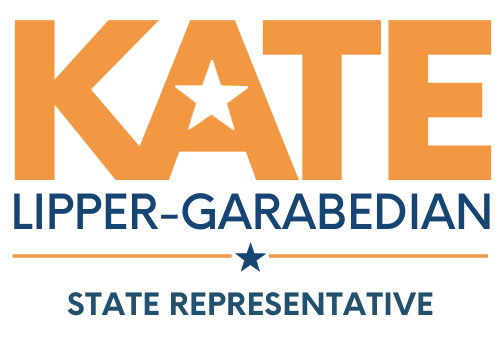Massachusetts House Passes Legislation to Address Teen Sexting and Image-Based Sexual Assault
BOSTON – Friday, May 27, 2022 – On May 26, State Representative Kate Lipper-Garabedian (D-Melrose) joined her colleagues in the Massachusetts House of Representatives to pass legislation addressing teen sexting and image-based sexual assault, commonly referred to as “revenge porn.”
“I am glad to vote to update state laws to ensure that we continue to respond to and reflect the digital nature of our lives,” said Representative Lipper-Garabedian. “As a former teacher and education attorney, I am pleased that the bill appropriately addresses teen sexting by underscoring the need for diversion and education, rather than blunt criminalization. One decade ago, as a senior legal and policy education advisor, I worked with other state clients interested in updating their legal frameworks to establish such an approach. I also am glad to support survivors of revenge porn with resources and by establishing penalties for perpetrators of such abhorrent conduct.”
“I’m proud the House passed a bill consistent with our intent during criminal justice reform to provide intervention through diversion instead of incarceration for minors,” said House Speaker Ronald J. Mariano (D-Quincy). “Additionally, the bill criminalizes image-based sexual assault by adults and affords victims of this crime protections, including the opportunity to get a harassment prevention order against their perpetrator.”
“This bill prioritizes survivors of revenge porn by unlocking resources for them while, at the same time, closing a loophole in our criminal harassment statute that will serve to deter and punish those who engage in these horrific acts,” said State Representative and Judiciary Chair Michael S. Day (D-Stoneham). “From providing access to victim witness advocates and direct input on criminal dispositions to enabling survivors to pursue civil remedies against their perpetrators, this approach will empower survivors to reclaim their lives in addition to providing clearly enforceable punitive measures for these crimes.”
“Under current law, when faced with an incident of sexting among teenagers, the police are forced with either charging them with a felony or doing nothing,” said State Representative Jeffrey N. Roy (D-Franklin). “The bill passed today provides law enforcement officers with a middle ground that will allow them to educate kids about the consequences of their actions without ruining their lives. It will have a tremendous impact on people who have become entangled in the web and transmittal of images that can cause traumatic and lifetime harm through a diversion program that will educate them about the legal and personal consequences of “sexting.”
Currently, minors who possess or share explicit photos of themselves or other minors are charged with violating Massachusetts child pornography laws and are required to register with the Sex Offender Registry. “An Act relative to transmitting indecent visual depictions by teens and the unlawful distribution of explicit images” (H.4498) allows minors to be diverted to an educational program established in the bill prior to delinquency proceedings.
The educational diversion program, to be created by the Attorney General and the Department of Elementary and Secondary Education (DESE), would provide teenagers with information about the legal and nonlegal consequences of sexting, which would be made available to school districts. DESE should also encourage districts to implement media literacy programs in their schools as a prevention measure.
A district attorney, however, is allowed to petition the court to bring criminal charges in extreme cases. The bill creates a new misdemeanor offense specifically for minors who possess or disseminate explicit images.
In addition to teen sexting, the bill addresses the nonconsensual distribution of explicit images by adults by establishing a penalty in the existing criminal harassment statute, including prison time and/or a monetary fine for first and subsequent offenses. Under this bill, a victim may also petition the court for a harassment prevention order against a person who has violated this statute.
“An Act relative to transmitting indecent visual depictions by teens and the unlawful distribution of explicit images” (H.4498) passed the House of Representatives 154-0. It now goes to the Senate for their consideration.
